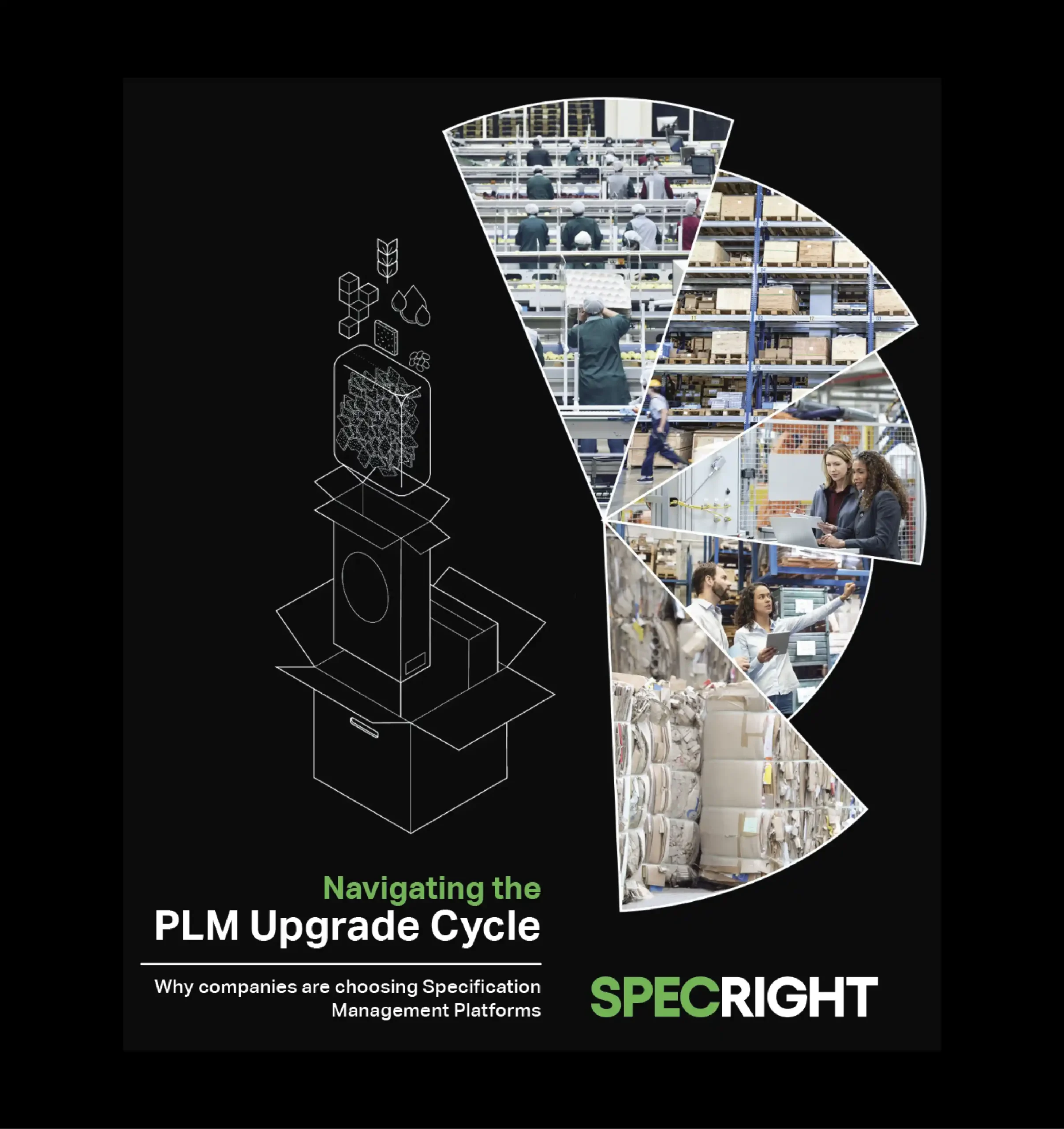Does this sound familiar?
You’re in a room planning for the next year when the conversation centers around thinning margins. Packaging costs are on the rise, supplier data is sometimes erratic, and you have less visibility into the supply chain than you want.
We often hear packaging professionals lament these common challenges. Many of whom have tried to close the gap with process improvements or existing technologies like ERP (Enterprise Resource Planning) or PLM (Product Lifecycle Management) software.
Unfortunately, they eventually hit a wall.
Most of these challenges come from a lack of data management capabilities, which creates endless cycles of emails, phone calls and meetings simply to stay connected with all involved parties.
Implementing a New Approach to Data Management to Assist with PLM Upgrade Gaps
While frustrating, a digital awakening is giving the industry confidence that better data management will deliver a changed future.
While great innovation has been happening, many established product lifecycle management (PLM) software vendors have not kept pace with changing demands leading many enterprise organizations to take a new approach to their data management – what we call a “spec-first” approach.
Traditional PLM solutions are generally highly customized and complex to use. It makes collaboration across networks nearly impossible. And, ultimately these systems do not comprehensively track the DNA-level data of your products and packaging. That’s why at Specright, we believe a “spec-first” approach to data management is required for supply chain transformation.
Product Lifecycle Management Tools vs. Specification Data Management Solutions
PLM tools manage product and spec data at the Bill of Materials (BOMs) level, which simply means that those items are listed. There are no relationships specified or linkages to other products or other BOMs (for example, BOMs within BOMs).
In reality, the power of this data is only realized when there are the linkages and relationships across a company’s products.
With Specification Data Management (SDM), Specright creates relationships between BOMs, raw materials, ingredients, formulas, and packaging. This enables various business functions: procurement, packaging, new product development, quality, and so on to perform advanced analysis to discover ways to reduce SKUs, swap out raw materials for sourcing or performance issues, and to quickly spot quality issues and get to the root cause.
This new approach allows for greater network collaboration, flexibility, and a user-friendly experience that drives adoption. Let me provide an example of the power of this approach.
The Value of a Spec-First Approach
A large medical device company manages the front end of product development in Specright and once a design is considered final, route it over to their PLM for final workflows and approvals across internal departments. Their pilot deployment improved the cycle time of the first process by >60%. The implementation team set a goal of 50% with reservation that they could achieve that target and they blew right by it within the first few months.” Read full case study here.
With results like that it’s no wonder transformation adoption is accelerating.
Most companies have some sort of cost-savings initiative to combat inflationary pressures, threats of recession or to simply improve the bottom line.
But the reality is, most don’t have standardized data at the component level of their products and packaging to do so. With a spec-first approach, you can easily search and identify similar items that can be consolidated, driving efficiencies and volume discounts.
Leveraging a Spec-First Approach to Achieve Sustainability Goals
The spec-first approach has the added benefit of better managing growing sustainability reporting and compliance demands.
Today, most companies are dealing with sustainability regulations like the UK plastic tax, Extended Product Responsibility (EPR) laws, or simply need to report on sustainability as part of broader corporate goals.
The reality is, most PLMs don’t enable companies to easily report on and baseline raw material level, because they don’t go deeper than the BOMs.
“Specifications change constantly due to a variety of reasons. Regulatory compliance, sustainability efforts and marketing initiatives are just a few of the drivers on that list. Ultimately, the entire supply chain is impacted,” said Jason Higbee, former General Manager at Cal-Organic Farms, a division of Grimmway Farms, a global produce leader and the world’s largest producer of carrots. “Specright’s Blockchain Network has the potential to improve visibility, organization, and change management of critical specification data across the supply chain while increasing efficiency and control.”
Although Specifications Management is a relatively new solution category, in the last five years it’s been recognized by leading analyst firms like Gartner and proven in dozens of enterprise implementations.
Eager to learn more? Our whitepaper on Navigating the PLM Upgrade Cycle is packed with case studies, practical tips and benchmark benefit measurements.
Explore More Blogs
Get Started
With Specright’s Solution Suite, you can digitize, centralize, and link your specification data to drive efficiencies, intelligence, traceability, and collaboration within your organization and across your supply chain network.




